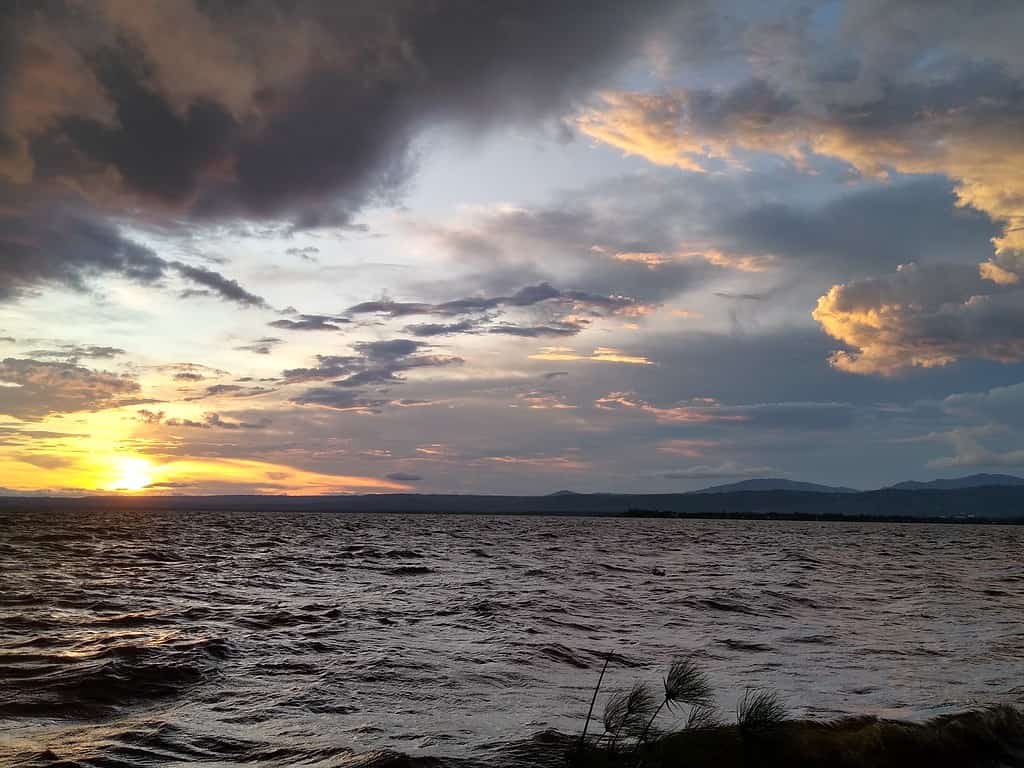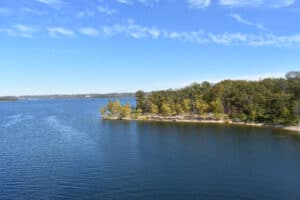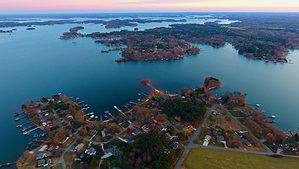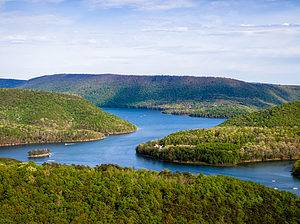Also known as “Africa’s Pride,” Lake Victoria is truly a sight to behold. It helps support the local economy, provides a home for a variety of animals, and serves as a convenient transport route for many locals. In addition, its surface area is roughly 23,000 square miles, making it the largest lake in all of Africa. Despite this, few people know the story of this lake’s origins. Let’s discuss the history of Lake Victoria and explore how and when this Great Lake was formed.
History of Lake Victoria

Fishermen catch roughly one million tons of fish in Lake Victoria each year.
The beginning of Lake Victoria’s story starts roughly 400,000 years ago. At this time, the basin was formed by shifting in the East African Rift System. This lake has been home to a variety of wildlife throughout the years, and historically, biodiversity in this area has been great. Some animals native to this region include Nile crocodiles, hippopotamuses, spotted-necked otters, and a variety of marine life. Locals have lived by this river for centuries and reaped the benefits it provides.
Although people have been frequenting Lake Victoria for hundreds of thousands of years, it wasn’t formally documented until 1858. Explorer John Hanning Speke was on an expedition in search of the source of the Nile River when he came upon it with his crew. Although the Lake had many African names before this point, such as Ukerewe, Nyanza, Lolwe, and Nalubaale, Speke named it Lake Victoria in honor of Queen Victoria.
Present Day Lake Victoria

Lake Victoria is the largest tropical lake in the world.
Lake Victoria is not only a beautiful landmark, it’s also very economically important for the surrounding area. There are roughly 40 million people living in the area surrounding Lake Victoria, and about 10% of the population relies on income generated from industries related to this lake. In particular, the fishing industry is one of interest. According to the African Great Lakes Information Platform, “The lake generates over 150 million dollars in export earnings and provides high-quality fish protein to about eight million people in the basin. The lake is an important transport route linking the East African States, is a reservoir for at least four hydropower stations along the Nile, provides water for industrial and domestic use, and regulates local climate.”
Concerns Surrounding Lake Victoria
The population surrounding this lake grows each year. However, the quality of life for many individuals in this region is lacking. Deforestation, overfishing, and pollution have damaged the quality and quantity of fish living in Lake Victoria. In addition, climate change has had a significant impact on the volume of water. Countries surrounding the lake such as Kenya, Uganda, and Tanzania are home to many poverty-stricken communities. Many people living near Lake Victoria do not have access to clean water, proper food, or adequate medical care. Diseases like HIV, malaria, and cholera are prevalent. Measures have been taken to reverse the damage done, but lack of funding and mismanagement have slowed this process significantly.
Final Thoughts
Although the situation might seem dire currently, politicians in the area are working to improve it. It is estimated that in 50 years, the damage done will become irreversible, so time is of the essence. Lake Victoria has long been an important resource for Africa, and with any luck, it will bounce back to its former glory in due time.
The photo featured at the top of this post is © Parlanter / CC BY-SA 4.0 – License / Original
Thank you for reading! Have some feedback for us? Contact the AZ Animals editorial team.







